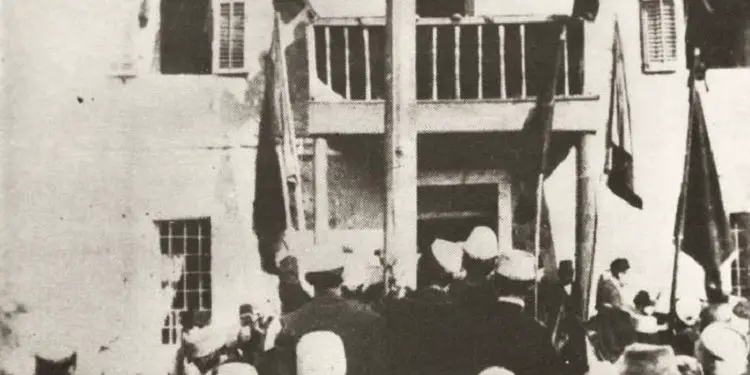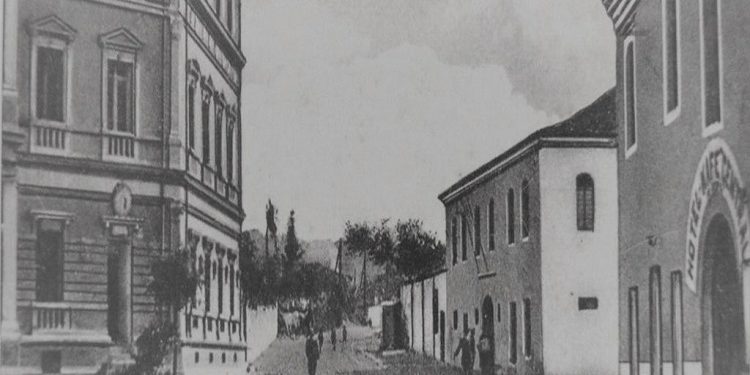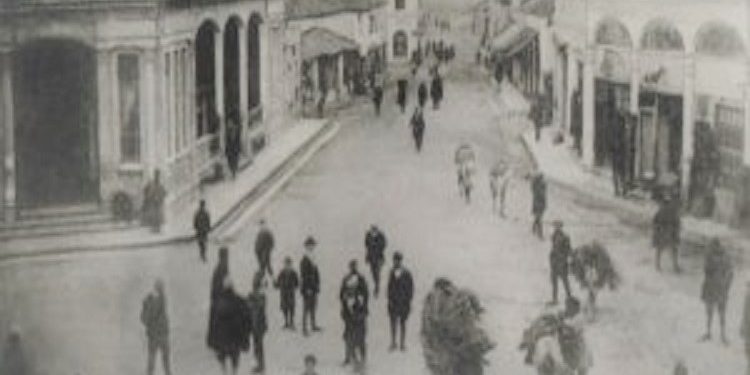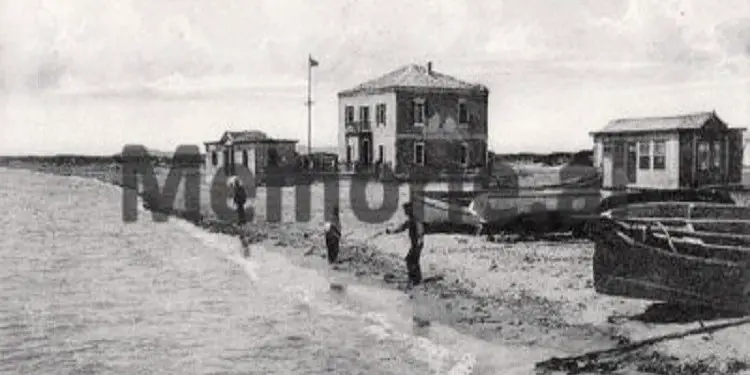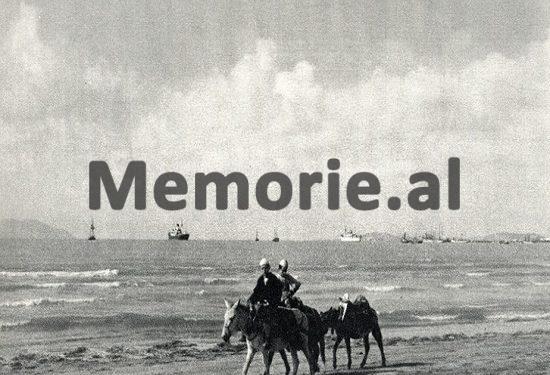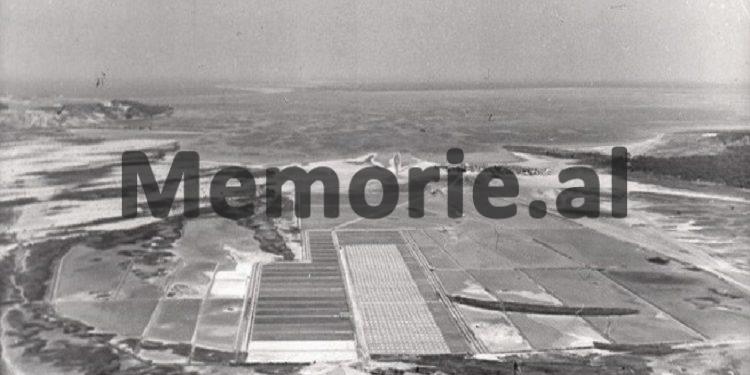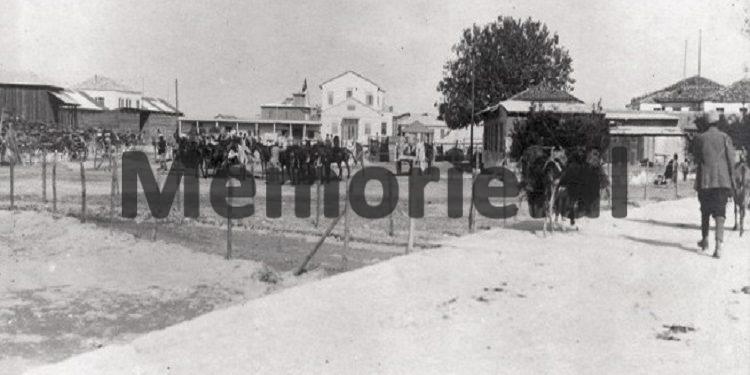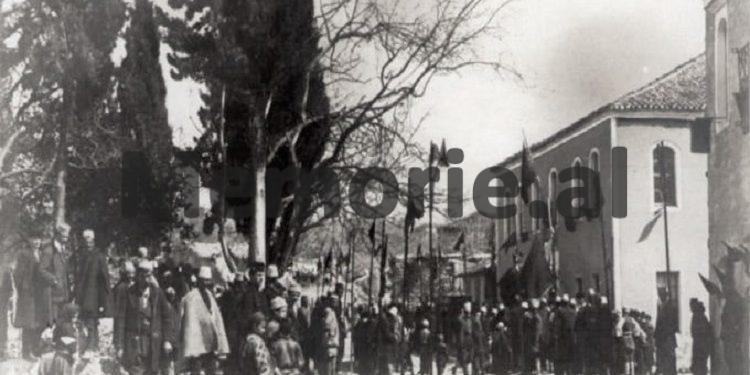By Sven Aurén
Translated by Adil N. Bicaku
Part twenty-six
ORIENTI EUROPE
Land of Albania! Let me bend my eyes
On thee, thou rugged nurse of savage men.
Lord Byron.
In the book “Orient of Europe”, the author of the work is the Swede Sven Aurén. They are impressions of traveling from Albania from the ‘30s. His direct experiences without any retouching.
In a word, the translation of the book will bring to the Albanian reader, the original value of knowing that story that we have not known and we continue to know it, and now distorted by the interests of the moment.
Now a little about what these lines address to you: My name is Adil Bicaku. I have worked and lived for over 50 years in Sweden, without detaching for a moment, the thought and feeling from our Albania.
I am now retired and living with my wife and children, here in Stockholm. Having been for a long time, from the evolution of the Albanian language, which naturally happened during these decades, I am aware of the difficulties, not small, that I will face, to give the Albanian reader, the experiences of the original.
Therefore, I would be very grateful if we could find a practical way of cooperation together, to translate this book with multifaceted values.
Morally, I would feel very relieved, paying off part of the debt that all of us Albanians owe to our Albania, especially in these times that continue to be so turbulent.
With much respect
Adil Biçaku
Continued from the previous issue
While the engines are roaring and the sun is dancing on the plane leaf, I take out of my pocket a small letter, which I could not open, in the hotel in Shkodra. It is a long white envelope, sealed in Kruja. That little school teacher, who celebrated some triumphs in the mountain town cafe, is the sender of the letter.
Cher monsieur,
During our pleasant co-concentration in Kruja, I had the opportunity to give you a small idea about the Albanians, who could have become known in the world, after the time of Skanderbeg. I am sorry that I did not mention some names of the time before our great National Hero at the same time, and therefore I am allowed to draw your attention to two historical personalities, whom, apparently, you did not reflect on their Albanian origin.
So ahead is Olympia, the mother of Alexander the Great, who was the daughter of the King of Epirus and, consequently, of Albanian blood. The other personality must have been Alexander the Great himself, who in all circumstances was “half” Albanian. But since Alexander’s father, Philip was Macedonian and Macedonia had an integral part of the very large Albanian population, then there is always the possibility that Alexander the Great was Albanian by father and mother. Always at your service, regarding the history of Kruja and Albania, please accept my promise of honesty and respect.
Glory to such a teacher! If he continues a little longer, he will be able to monopolize, together Adam and Eve, on behalf of Albania, as Olof Rudbeck once did for Sweden.
Now we take a turn. Down there, the minarets and low, white houses of Tirana can already be seen. Life is full of wonders. I never dreamed of being on a lightning speed plane and reading a letter about the descent of Alexander the Great!
SELIM BABA AND FIFTEEN DISHES
This time we stayed only a couple of days in Tirana. Early one morning, when the rooster started to sing, I would say if it were not for the strange way, that the Albanian turkeys were singing all night, we rented a car and went down to the coast. Durres is almost awake, when we drive fast, towards the pier to enter the steamer board. The shopkeepers were busy opening the window shutters and preparing for a new day.
Down at the steamer life is the same as when we first stepped on Albanian soil: carriages and drivers upset, waiting for passengers, representatives of the Durrës’s unemployed committee, some hamej, the pier captain in excellent uniform and white collar, to blind you, screams, laughter, discussions. But enough to note: this movement is focused only on the scaffolding. The big steamer stands in death silence with freshly washed deck and polished brass. When we reach the middle of the catwalk, the helmsman comes in front of us, to ask for the tickets. On his surprised face, it is clearly written: “Padre mio! Passengers are coming”!
The thing is, this Italian super modern and hyper elegant steamer has five sisters, sisters, who traffic in the Adriatic Sea. The six steamers are designed to carry both passengers and cargo. Passenger traffic is completely absorbed by Yugoslav steamers, which are not even as elegant and fast as their Italian competitors, but in return, enjoy great popularity. Very nice to see the accuracy, like the clocks of these motor steamers, sailing the Adriatic, around and around again, as if carrying out the order of some billionaire, who wanted to practice hunting equipment. The billionaire is Il Duce himself. The shipyard in Venice is not worried about the lack of passengers, because the state subsidizes them, so they live without passengers.
So this is how it goes, we are on our way to the south of Albania; we have a luxury steamer just for ourselves. We are completely alone in the elegant salons, in the pleasant hall, in the regular bars. Servants rejoice to have something to do; waiters try to compete with each other, for speed and courtesy. There is something melancholy about this abandoned steamer. It is so well maintained and tidy that one would like some more passengers. But the situation in the Adriatic, once again, is not in favor of Italy and the Italians are not innocent because it is so.
***
In the afternoon, we slide on the anchor of Vlora.
There in Vlora, where Ismail Bey Qemali in 1912, proclaimed for the first time in world history, Albanian independence. It was in Vlora, where the first government was formed and the first “academy”, which without result, tried to solve the enigma of writing the Albanian language. It was also in Vlora that on a dark night after the end of World War II, the inhabitants were suddenly upset by the brutality of the occupation of Italian troops and forced both officers and military troops to flee quickly to the nearby island of Sazan.
But even though the city does not lack memories, it arouses the same interest as other Albanian cities. This depends mainly on the fact that the environment is not Albanian. Both in construction and in the way of life, Vlora gives you an Italian impression. Of course it’s still not a mistake. It is also that a traveler in Albania, first of all will find what is Albanian.
But how could the inhabitants of Vlora, feel the experience of a pleasant feeling, to be independent citizens, in an independent state? Every time they roll their eyes outside, towards the port, they are forced to reflect on the character of friendship, complicated Italian. The white city of Vlora lies along the gentle curve of a wide bay. At the mouth of the bay, lies the island of Sazan.
Suppose Kastelholm in Stockholm was Soviet-owned and the old saloon batteries were replaced with a pair of ultra-modern forts strong enough to guard the capital, with a good number of batteries directed. This is approximately the connection between Sazan and Vlora, but only with the difference that the strategic situation of Sazan is infinitely much more suitable than that of Kastellholm. As the Italian batteries are placed in Sazan, there is no point like in Vlora or its surroundings, which cannot be destroyed by strong fire. In the literal sense Vlora, lives a life under constant threat, from large caliber cannons from Sazani.
But now comes the most interesting of this story. Sazani is not an Italian island. Yes, he is with the right of the strong, but not in the legal sense. When the International Commission, in 1913, established the borders of free Albania, no exception was made for Sazani. When Italy in 1921, signed the famous treaty of Tirana, the island was still respected as Albanians. The situation is simple, that Italy has never bothered to leave Sazani, because Albania has not had any opportunity to come to power after its repeated complaints.
Italy has turned this Albanian island into the strongest fortress in the Adriatic and with this; it owns the entrance to the Adriatic Sea. Between Vlora and Sazan, there is no possibility to cross. On the other hand, in case of war a strong chain of mines will form the road-connection, with the Italian peninsula. Sazani, therefore, is of utmost importance to Italy. In 1921, when England’s friendly stance brought the issue of Sazani to the forefront, the Italian press caused a great deal of outrage.
‘Corriere d´Italia’ explained that there was no reason to discuss the problem. “Italy will never leave this island, for its necessary existence.” “La Epoka” was even harsher: “Any attempt to discuss property rights will make Italy consider it unfriendly.” The discussion also stopped quickly and the development went according to the dream of Italy’s lines. In peace and comfort, the very valuable island of the port of Vlora, could be transformed into Adriatic Gibraltar.
In this shadow, in the Adriatic Gibraltar, live 10,000 inhabitants of Vlora, their simple life. A large part of Albanian exports passes through this scaffolding and offers both work and bread. The green velvet forest olive grove around the city is the largest in the country and by means of rational methods of harvesting; they have been able to increase the olive production every year. Even salt mines have a wide range. According to Albanian logic, Vlora is a rich city. It would probably have been even richer if the oil discoveries, as early as 1926, had not alienated an Italian company.
Exactly these days, Il Duçe, would surely pay a high price, for this Albanian oil. Now he has the rights, in time and did not hesitate to use them. But because it is a but! – The possibilities are not as unheard of, as the world press of some countries presented it. Rather they are modest. So far, Italian engineers have not been able to raise production to more than 200 barrels, maximum, per day.
A walk in the streets of Vlora is not so interesting. The houses are white Italian style, some cafes, people in European clothes, a square with a statue decorated with flowers of a prominent man, members of the Vlora family. Generally nothing special, which attracts and fascinates our eyes, not before we come up, to the mountain above the city. Because as in ninety-nine percent of the cities of Albania, Vlora climbs naturally, up a mountain. And of course there is also a romantic castle ruin, at the top of the mountain. In these two points of view, Vlora is completely Albanian!
In a cart we shake slowly, up the steep road. It was already getting dark when we reached the small town of Kanina, which lies immediately under the ruins of the Byzantine fortress. Here in Kanina, Ismail Qemal Bey is buried. It is not a great resting place, which is worthy, for the founder of Albanian independence: a hill of earth, as if by a coincidence placed in front, a wall and surrounded by a barbed wire fence. But as a substitute for the monument and the yellow inscriptions, visitors to Ismail Qemali’s tomb have a panorama, which is a miracle.
In the fast rising twilight, we head out onto a terrace, where it emerges from the mountain wall, like a romantic balcony. Sparklers, sparkle like cigarette fires, on that slope below, thousands of small bulbs, which light up, go out and turn on again. The white houses of Vlora have now received red paint. From there, away from the threatening cliffs of Sazan, the sun continues to disappear, in the waters of the Adriatic. We could see it with our eyes, how that sparkling plate crawls down on the waterfalls and suddenly it seems strange to me, that it does not fry and foam, in this match between the sun and the sea.
Those steep shores, in the north and south of Vlora, are presented with a supernatural, sharp light. This is how the last remnant of this globe disappears, fiery and my eyes make the same mistakes, as many times, forward to other sunsets: it seems to me that the last part of the plate, descended extremely much faster, than the first part. The sparkle and suddenly disappeared though for now, there was even a piece of needles.
But here it is different from the Swedish archipelago. Twilight does not delay here, then the sun has said goodbye. It gets dark at once, and we see only a few feet in front of us when we stand on our balcony. But above us we see even more! There shines the starry sky of the southern Balkans, with millions of lights and bright white leaves of the Milky Way. In the center of the dim crescent, in yellow, hangs a twinkling star. And so I made a correction, out of an old misunderstanding! The symbol of Turkey is not a poetic discovery by the beauty-loving Turks.
We drive down, towards the city again, take careful turns around some grenade pits, which are still left, from the time of World War and come to the pier dam, where a kayak waits for us, to take us aboard the ship. At the anchor is our luxury steamer, the only one with lights on the valves and the bright facade of the chimneys. We are still the only passengers. Stuarts think of inviting us for fish the next morning, that’s clear. He hangs down on the surface of the water, two powerful projectors and the fish gather en masse, inside the circle of glare.
They are dark flocks of small fish and thick lobes, which move servilely, through the diligent movement of their large tails. Occasionally a fish is thrown over the water, sparkling like a silver coin, in the strong light of electric light, sprinkling some sparks, like pearls when it dives again. Stuart looks pleased, where he sits and puts bread on the shining hooks.
-The bathroom is ready, signor! Announces the cabin attendant. Because these Italian coastal steamers are so elegant that they even make the baths available to passengers.
And just when I leave to go to the bathroom, the noise in the chains starts and our steamer sails out of the bay of Vlora, to take its two passengers to the southernmost port of Albania, Saranda and the ruin town of Butrint. Memorie.al




